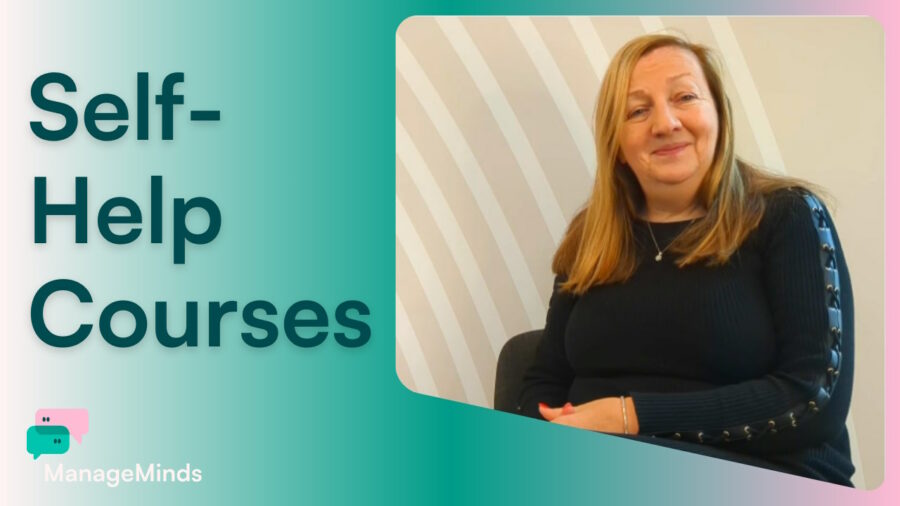3 Things You Need to Do to Get the Most Out of Therapy
Whether you've been going to therapy for years or you have your first session coming up, these 3 tips will help you to reap the potential benefits!

Wondering if therapy is worth the time and money? Well, a big part of what makes therapy successful or not is what you bring to it. We’re talking about things like your expectations, attitude and commitment.
No matter where you are on your therapy journey (way down the road or considering setting off), we have 3 tips that will help you to get the most out of it.
Let’s get started!
1. Be open and honest
This might seem like a no-brainer, but it can be harder than it sounds. You might head into a therapy session armed with a bunch of things you want to talk about, only to find that when you’re facing a therapist, the words just won’t come out.
Talking to a relative stranger about your innermost thoughts and struggles is not easy. Holding back important information or pretending things are fine, however, will prevent you from accessing the guidance and support that you need. Thankfully, therapists are well aware of this and part of their job is to make you feel comfortable enough to open up. Help them along by doing your best to embrace vulnerability and share your real thoughts and feelings.
How to achieve it
- If you’re struggling to express something personal, switch to explaining exactly what’s going on in that moment. For example: “I wanted to mention something specific but I’m having a hard time finding the words.”
- Hold your future self accountable by mentioning at the end of each session certain topics you want to discuss in the next session.
2. Find the right fit

Not every therapist is going to be a good match for you. It’s really important that you find someone with whom you feel relaxed and safe, as therapy is a very personal experience. If you find that you’re not gelling with a particular therapist, it’s often more beneficial in the long run to cut your losses and try someone new.
You shouldn’t feel bad about doing this. It doesn’t mean that the therapist is bad at their job; it just means that they’re not a good fit for you. Therapists are used to this and may even be able to recommend somebody else.
That being said, you need to give a therapist a real chance—don’t decide that they’re not for you after just one session. Keep in mind that sometimes it will be your therapist’s job to tell you things you don’t want to hear. If they leave you feeling angry or annoyed, interrogate why you may be feeling this way before switching to another therapist.
How to achieve it
- Make sure you know a company’s policy around switching therapists before you book a session.
- Narrow down what you’re looking for in a therapist and use initial consultation calls as an opportunity to ask questions about things that matter to you.
3. Do your homework
The idea of doing homework as an adult is not fun, but when it comes to therapy, it really is all for your own benefit. Depending on the type of therapy you’re doing, your therapist may set you certain tasks as homework. This could be anything from writing down your dreams, to facing up to a fear. The more you commit to these exercises, the more progress you will make.
If your therapist doesn’t explicitly set homework, there are still plenty of things you can do outside of sessions to build on what you’re achieving. You could practise relaxation techniques you’ve learnt, explore old photographs to see if they stir up any important memories, or supplement your therapy with mindful activities like meditation.
How to achieve it
- Take notes during or directly after your therapy sessions so that you have a record of what’s been discussed and any notable reactions you had.
- When scheduling therapy in your calendar, block off time after the session to reflect on what you talked about and collect your thoughts.
Actioning these 3 tips can make a world of difference to your experience of therapy. Particularly if you’re going for a single session, you’ll want to do everything you can to make the most of it!
Still not sure if therapy is right for you? Check out 3 reasons to start therapy.
Post Date:
Author: Isobel Robb
Explore More Articles
Feeling Worried? Challenge Anxious Thoughts with These Simple Questions
Stuck in a spiral of anxious thoughts? Use these 3 simple questions to challenge negative thinking and adopt a healthier mindset.
ManageMinds Explains... Narcissists
Even wondered if you or someone you know may be a narcissist? In this guide we cover what narcissistic personality disorder is, as well as the signs you need to watch out for.
ManageMinds Just Launched Self-Help Courses!
ManageMinds now offers a range of self-help courses. Find out everything from what's included to prices in this article.


